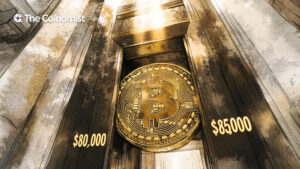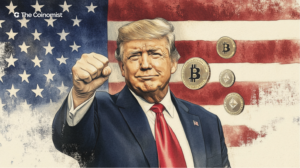U.S. Attorney General Sued by DeFi App Developer

Michael Lewellen, a cryptographic software developer, has brought legal action against the U.S. Attorney General, drawing attention to the lack of clarity in DeFi regulations. This lawsuit raises a pressing question: can centralized governance and decentralized financial technologies find common ground?
Coin Center researcher and blockchain developer Michael Lewellen is suing Attorney General Merrick Garland over regulatory concerns threatening his platform, Pharos. Llewellyn took to X (formerly Twitter) to reveal his decision.
Pharos is a decentralized crowdfunding platform, uniquely designed to refund contributors via smart contracts when projects fall short of their funding targets. Even though the system prevents developer interference with transactions, Lewellen fears the platform could be wrongly classified as an unlicensed money transfer service.
This lawsuit is emblematic of a growing conflict between decentralized innovation and U.S. enforcement trends. Recent legal actions against Tornado Cash and Samourai Wallet developers have drawn criticism from both the crypto community and civil liberties advocates. Tornado Cash’s creators faced money laundering charges, though their platform primarily supports privacy-conscious users.
Related: What mixers still operate after the Tornado Cash shutdown?
At the heart of the issue is an outdated regulatory system that was built for centralized finance. DeFi’s decentralized structure, which operates without intermediaries, makes traditional laws on money transmission appear increasingly antiquated and ineffective.
The current regulatory vacuum brings two major risks:
Developers are forced to navigate legal ambiguity, unsure which steps may lead to prosecution. Simultaneously, enforcement agencies gain the freedom to act selectively, turning regulatory gaps into an opportunity for favoritism or abuse, with little accountability to restrain them.
On a fundamental level, this dilemma showcases the inherent conflict between centralized government oversight and the decentralized ethos of DeFi. Governments seek to regulate financial activity for purposes such as tax compliance and the prevention of illegal financing.
In stark contrast, decentralized systems are engineered to function independently of centralized authorities, positioning themselves as a challenge to the state’s control over monetary networks.
For regulators, decentralized platforms represent a dual-edged sword: a threat to their financial oversight and a challenge to reconcile innovation with public interest. Yet, they’ve offered little in terms of frameworks that would bridge this gap.
Michael Lewellen, developer at Coin Center. Source: cs.utdallas
Resolving the conflict between governments and DeFi requires deliberate action:
- Build fresh regulatory frameworks that account for the decentralized nature of these technologies rather than force-fitting existing models.
- Include blockchain developers in the rule-making process to balance innovation with regulatory needs.
- Define specific actions that are prohibited, so developers can innovate without fear of arbitrary enforcement.
Centralized systems and DeFi are natural adversaries. Governments depend on centralized frameworks for control and stability, often at the expense of progress and privacy. DeFi, however, prioritizes freedom and transparency, creating hurdles for law enforcement and policy compliance.The Lewellen lawsuit is a stark reminder of the friction between regulators and decentralized innovation. As governments endeavor to uphold their authority, DeFi developers and users rally to protect their vision of financial freedom. This clash signals the emergence of a new era where centralized and decentralized forces must find a balance.
The content on The Coinomist is for informational purposes only and should not be interpreted as financial advice. While we strive to provide accurate and up-to-date information, we do not guarantee the accuracy, completeness, or reliability of any content. Neither we accept liability for any errors or omissions in the information provided or for any financial losses incurred as a result of relying on this information. Actions based on this content are at your own risk. Always do your own research and consult a professional. See our Terms, Privacy Policy, and Disclaimers for more details.




















